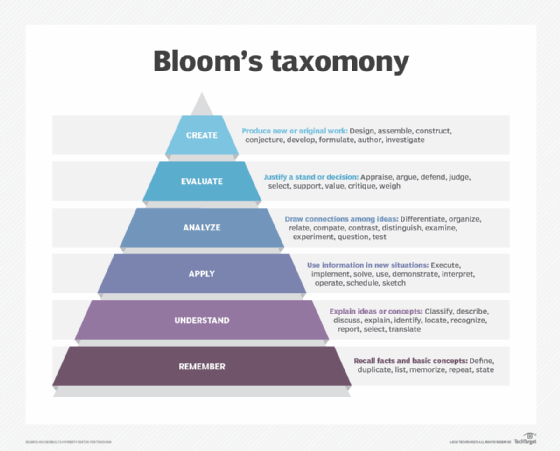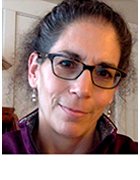
ThorstenSchmitt - Fotolia
Study up on the best certifications for testing professionals
Before you invest time into a certification course, decide if you want to step into a new career or want recognition for hard-earned experience. Then, peruse the apt certification options.
Professional development ranges from informal self-education to certification. For example, I ask job candidates and consulting clients about their favorite book, website or podcast on software testing, which can often elicit a blank stare. Those candidates invite concern about their approach to work. Certifications, a step above informal edification, help qualified individuals stand out from the pack of test and quality job candidates.
Some software testing certifications require more effort than others. Think about the difference between a college degree, with 30 to 60 credits in a specific major, and a two- or three-day course. At 16 hours, a two-day course is not as complex as a degree. However, the IT hiring market rewards these courses, likely because the alternative is no professional development at all -- an especially low bar.
IT professionals who want to improve their software testing career have a strong incentive to leap that bar. They can demonstrate know-how via software testing certifications, as well as Agile and Scrum titles, among others. Here are a few of the best certifications for testing professions.
Step into the test field
With over a half-million people certified around the world and 340 companies that provide training, International Software Testing Qualifications Board's (ISTQB) Certified Tester Foundation Level (CTFL) is the most common first choice for certification. The CTFL exam is a multiple-choice test with a high pass rate. Professionals entering the workforce or making a career change often use this exam as an entry point into software testing. The classes for the exam last two to three days and are easy to access, with self-paced online delivery as a common course format.
ISTQB tests reward the ability to memorize terms rather than demonstrate practical experience, which makes it an appropriate certification for someone entering the software testing field. The 96-page syllabus for CTFL provides a basis for the class materials. In addition to one of the best certifications for testing professionals, it's a handy review document for any QA engineer.
Quantify experience
Just as CTFL is a known way to get started, the Certified Software Tester (CSTE) and Certified Software Quality Analyst (CSQA) certifications enable experienced testers to demonstrate their abilities. Both CSTE and CSQA, offered by the QAI Global Institute, require several years of experience to obtain. The exams each include a 550+-word body-of-knowledge document, available as a PDF for anyone who registers for the course. Some people consider these software testing certifications less fashionable, though also less commercial than other offerings. It is more common to see user groups organize a study group over a period of weeks or months than to see a commercial trainer hired to prep for these exams.
The American Society for Quality's Certified Software Quality Engineer (CSQE) is a software quality certification, not a testing one. Like CSQA from the QAI Global Institute, CSQE sets a broader scope over requirements, reviews and inspections, security and process. The exam strategy seems to focus less on term memorization and more on understanding the concepts of value and information related to QA. The certificate requires eight years of training to pursue or as few as three years in addition to a master's degree.
Due to its broad nature, CSQE is relevant for managers, analysts, Scrum masters and even programmers, in addition to QA professionals, and can be particularly helpful for traditional organizations and industries. CSQE's reputation and value largely apply to North America -- not globally.
Self-certification is a more nebulous but no less valuable path to a worthwhile software testing career. Conference keynote speakers often don't have a software testing certification -- a few might have a doctorate, and some will have impressive job titles at impressive companies. For the most part, industry leaders do extracurricular activities to boost their public profiles: They write a book, maintain a blog, create a training program or serve as secretary of a local user group. This behind-the-scenes work builds relationships.
These activities are a form of self-certification and can demonstrate both a tester's personality and depth of knowledge. He must, however, do the public work for his own benefit -- not for someone else. When testers present to the community, it forces them to think through and communicate their ideas. This attention to detail can lead to more career opportunities.
Move into Agile, Scrum roles
International Software Quality Institute's (iSQI) Certified Agile Tester (CAT) is a five-day course that teaches testers how to participate in a Scrum team, concluding with an exam. Testers can also check out ISTQB's Agile Tester Extension, which focuses on the rules of Scrum. More popular in Europe than elsewhere in the world, the CAT program embeds testers in a simulation to understand how work is done in an Agile setting. The CAT exam offers a tool-focused and exploratory approach.
Certified ScrumMaster (CSM), offered by the Scrum Alliance, demonstrates that the carrier understands the Scrum method -- the development of software in small bits, getting feedback and adapting the plan quickly. Based on The Scrum Guide, the test typically follows a two- to three-day class. You don't need to have a Scrum master job title to attend CSM training. As the job market shifts, many testers could eventually move to Scrum master roles. The main skill requirements for a Scrum master, however, are different from QA. Scrum masters don't focus on finding bugs. Instead, they get people to communicate clearly, work together and visualize issues.
Stack knowledge high
This sampling of the best certifications for software testing professionals here relates to industrywide knowledge, which appears at the lowest levels of Bloom's taxonomy, an academic standard to classify learning objectives. For example, team members should have the same base-level definitions for terms like test case to reduce friction among workers. Still, testers must gain knowledge of the software, create powerful test ideas and document problems -- the higher levels of the taxonomy.
Certifications often rise to the second level of the taxonomy as well. For example, a high score on a series of well-written questions can show that one thoroughly understands The Scrum Guide. If a job candidate has multiple QA or testing certifications, the hiring manager can ask to compare two different exams during the interview. One being wider in scope and the other covering more direct practices guidance, for example, could lead to a discussion of what topics the candidate knows more -- or less -- about.

A self-certified person might have broad and deep knowledge of the field and an ability to compare and contrast not only approaches, but specific authors within an approach. She might also suggest a course of action within a given team, which elevates her learning classification to the Analyze level of the taxonomy.






